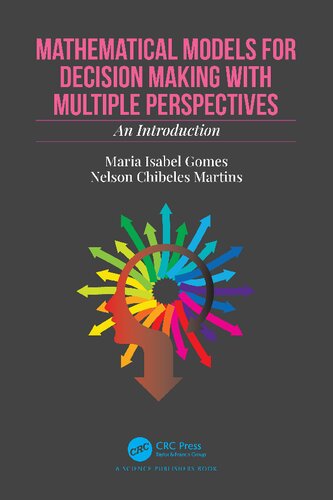
Mathematical Models for Decision Making with Multiple Perspectives PDF
2022·12.4129 MB·other
Most books are stored in the elastic cloud where traffic is expensive. For this reason, we have a limit on daily download.
Preview Mathematical Models for Decision Making with Multiple Perspectives
Description:
This book brings together, in a single volume, the fields of multicriteria decision making and multiobjective optimization that are traditionally covered separately. Both fields have in common the presence of multiple perspectives of looking at and evaluating decisions to be taken but they differ in the number of available alternatives. Multicriteria approaches deal with decision processes where a finite number of alternatives have to be evaluated while, in multiobjective optimization, this number is infinite and the space of alternatives continuous. This book is written for students of applied mathematics, engineering, and economics and management, with no assumed previous knowledge on the subject, as well as for practitioners in industry looking for techniques to support decision making. The mathematical formalism is very low, so that all materials are accessible to most readers. Nonetheless, a rich bibliography allows interested readers to access more technical literature. The textbook is organized in eleven chapters, each corresponding to a class of about two hours. A comprehensive set of examples is presented, allowing for a didactic approach when presenting the methodologies. Each chapter ends with exercises that are designed to develop problem-solving skills and to promote concepts retention. This book brings together, in a single volume, the fields of multicriteria decision making and multiobjective optimization that are traditionally covered by different books. It is written in a didactic form using examples to help understanding of the proposed methodologies better.
See more
The list of books you might like
Most books are stored in the elastic cloud where traffic is expensive. For this reason, we have a limit on daily download.
